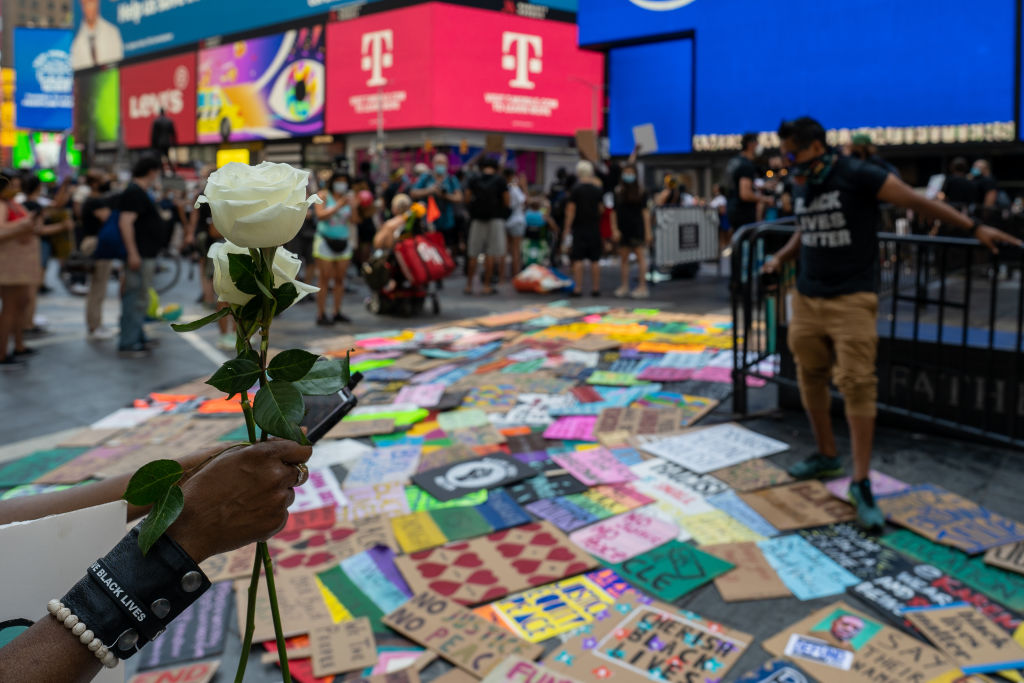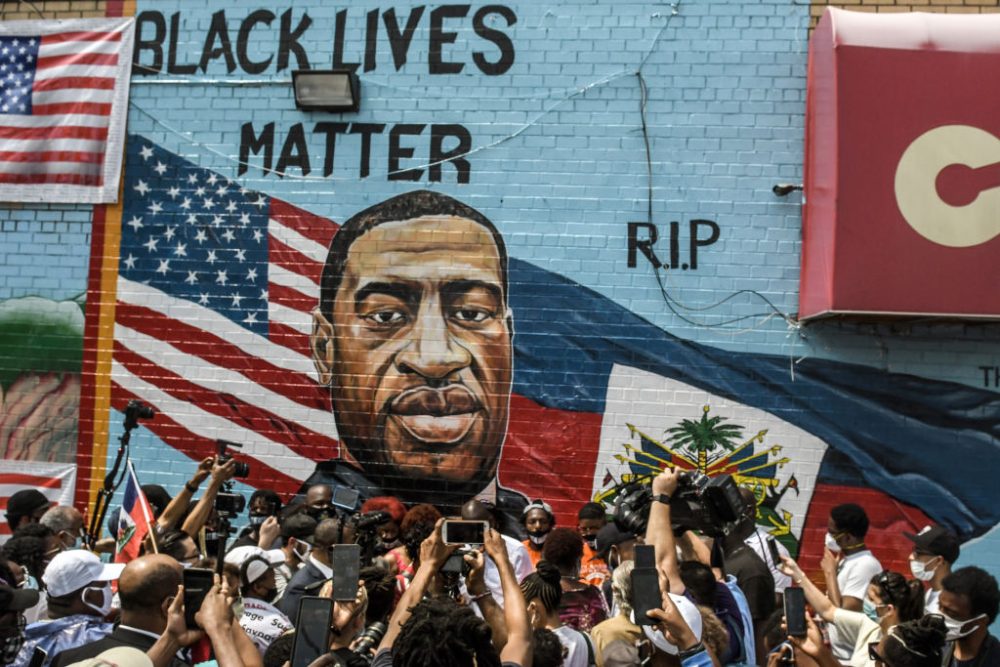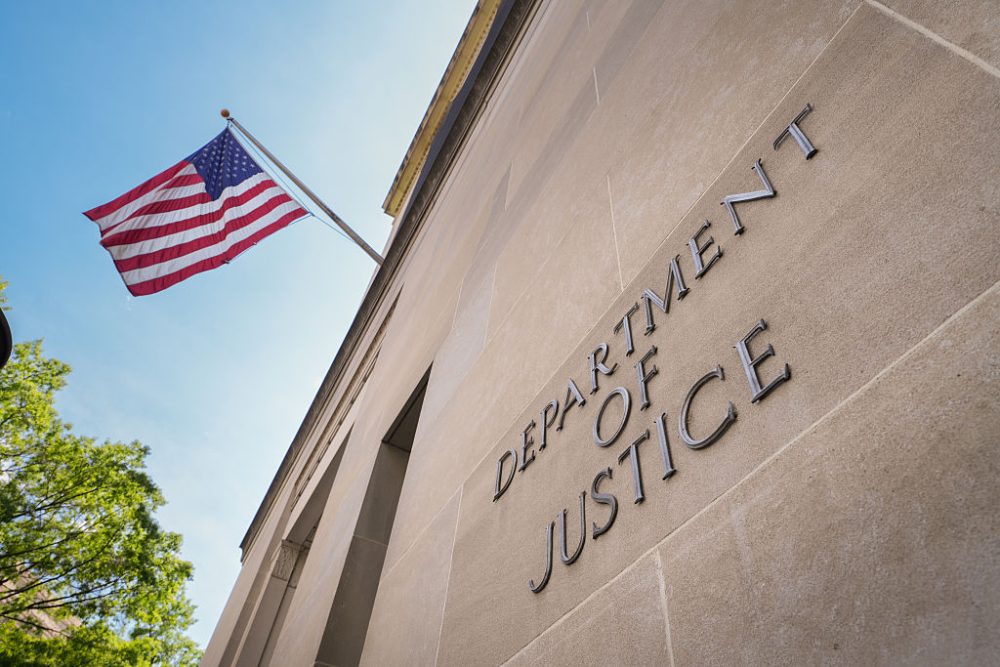The current resurgence of debate about racism shows that we still need the concept of sin. Seriously, sin? Yes. Without this concept, we can’t really understand the Black Lives Matter movement.
In the past, moral campaigns were tied to concrete demands for changes in legislation, or government policy. Ban the bomb, legalize homosexuality, overthrow capitalism, and so on. The BLM movement is rooted in frustration: it knows that laws already exist outlawing discrimination, but feels that such laws are hugely inadequate. For such laws cannot uproot systemic racism, which is built into the mindset of the majority. It declares that liberalism is too vague, too non-judgmental, too laissez-faire. In some ways, such radicalism seems to revive the absoluteness of Marxism, but it lacks the concrete goal of revolution. It is unconsciously reviving a more religious worldview: people should be judged according to the desires of their hearts. If you do not desire racial justice and do not express this desire in the proper pious way, you are complicit.
But when secular movements ape religion, they create something narrower than the original. By putting huge emphasis on one form of immorality, the BLM movement creates a dubious division between the pure and the impure. It implies that people who are free of racism, either because they are its victims or because they ardently side with its victims, are morally superior in a general way. This is where old-fashioned religion is crucially wiser: it says that we are all sinners, even if we zealously uphold this or that aspect of morality. Even if we do no discernible outward harm, we are prone to wrongdoing, we gravitate to it. Our hearts are not pure. In theory at least, this realism dampens the zeal of religious moralists: it reminds them that they share the same sort of impulses that result in the immorality they condemn in others.
To the BLM zealot, this sounds evasive and complacent. Saying that, on some level, we are all guilty is just a way of saying that nothing much needs to change, isn’t it? No actually: a quick glance at history shows that most of the main abolitionists and anti-racism campaigners simultaneously believed that racism was a sin and that they themselves were sinners. Isn’t that a contradiction? No, because they saw sin as wider than any particular moral evil. They saw slavery and racism as manifestations of human sin that must be opposed, but also saw that the root cause of the problem would stubbornly remain, for human beings are greedy, proud, tribal, and hungry for any claim to supremacy that is available.
I think that this is still the only really coherent approach to racism. We need the language of sin to make sense of it. Which means that I half-agree with the BLM zealots. Normal liberal morality is indeed inadequate here — it says that breaking the law is all that really matters. So long as I am law-abiding I can’t really be racist. But, of course, that’s not how it works.
[special_offer]
You can abide by the law, and be careful not to say anything offensive, but still harbor vague residual racist assumptions, and therefore contribute to the general racism of society.
This is surely the reality of the vast majority of white Westerners: we have imbibed countless mildly racist assumptions through the mother’s milk of our culture, and we are only partially able to be free of them. We cannot fully reject these assumptions, for they are subtly tied up with all sort of other things that make us who we are. Racism is a virus that we cannot completely isolate and reject. We can and should keep trying to reject our inherited racism, in the awareness that it cannot be cleanly uprooted. It is naive of the BLM zealot to say that we must be definitively anti-racist, and it leads to an ugly self-righteousness: we will be tempted to prove our goodness by accusing others of evil. And it is naive of the affronted conservative to deny that he or she carries any significant trace of racism or to pretend that all the fault lies in the excess of the zealots.
Only the language of sin allows us to be at all honest about racism. We ought to admit that it is a major moral evil — a sin. And we also ought to admit that it is a manifestation of the general human capacity for evil that none are free from. Secular thought simply cannot do this — it must either be politely evasive, or it must leap to dangerous zealotry. It cannot articulate the problem, however many millions of words it expends in trying. Christianity can articulate it, in one three-letter word.
This article was originally published onThe Spectator’s UK website.

























